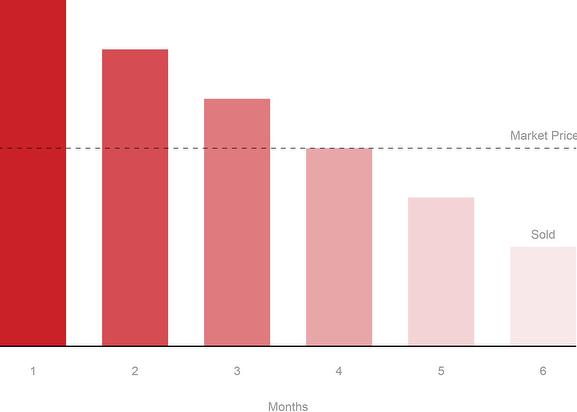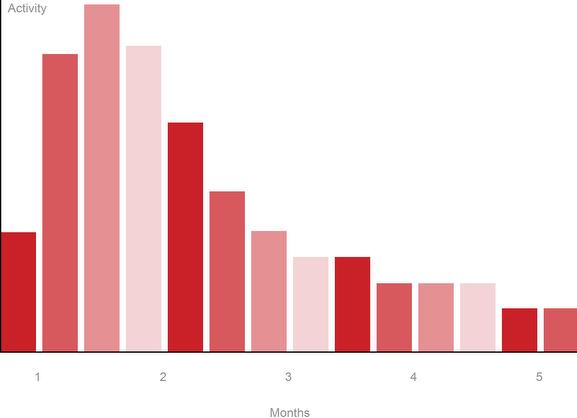
Our Selling Guide:
The Key to Selling your Home
Selling your home can be both an exciting and overwhelming process. Our selling guide outlines the steps that will help you see the best returns when you list your property for sale.
Pricing Your Property
The single most important decision you will make when we work together to sell your home is determining the right asking price for your property.
The Benefits of Pricing Right
1 Your property sells faster, because it is exposed to more qualified buyers.
2 Your home doesn’t lose its “marketability”.
3 The closer to market value, the higher and the more offers received.
4 A well-priced property can generate competing offers.
5 The real estate community will be enthusiastic about presenting your property to buyers.
The Result of Overpricing
Many sellers believe that if they price their home high initially, they can lower it later.
Often, when a home is priced too high, it experiences little activity. Gradually, the price will come down to market value, but by that time its been for sale too long and some buyers will be wary and reject the property.
You may think that interested buyers “can always make an offer”, but if the home is over-priced, potential buyers looking in a lower price range will never see it.

The Importance of Early Activity
As soon as a home comes on the market, there is a flurry of activity surrounding it. This is the crucial time when potential buyers sit up and take notice.
If the home is overpriced, it doesn’t take long for interested parties to move on. By the time the price drops, a majority of buyers are lost.

Define Your Marketing Plan
Your property is not something you sell every day. In fact, for most people it is their largest asset. A house is very complex to market and the process needs to be well organized. To do the job properly, we need to develop a strategic marketing plan.
We can prepare a personalized plan and listing calendar for you containing all activities required to market your property, including listing on the MLS®, creating marketing materials, traditional and online advertising, and networking with other members of the real estate community.
Signing a Listing Agreement
The first formal step in marketing your property is to enter into a Listing Agreement – a contract that commits Royal LePage to actively market your home for a specified period of time. It also commits you to a pre-established marketing fee that is to be paid upon the successful closing of the sale. In order to prepare the Listing Agreement we may require the following documents:
Plan of Survey of Location Certificate
A survey of your property that outlines the lot size and location of buildings as well as details of encroachments from neighbouring properties.
Property Tax Receipts
Most Listing Agreements require that the current annual property tax assessments be shown.
Mortgage Verification
You will be asked to authorize your mortgage lender to provide the figures required.
Deed or Title Search
This document is a legal description of your property and proof that you own it.
Other Documentation
This may include annual heating, electrical and water expenses, as well as any recent home improvement costs.
Note: In many provinces, you will be required to sign a property condition disclosure statement.
The Major Elements of an Offer
Price
Depending on the market and the local market conditions, the price offered may be different from the asking price.
Deposit
The deposit shows the buyer’s good faith and will be applied against the purchase price of the home when the sale closes. We can advise you on the suitability of the amount of the deposit being offered.
Terms
Includes the total price the buyer is offering as well as the financing details. The buyer may be arranging their own financing or may ask to assume your existing mortgage if you have an attractive rate.
Conditions
These might include “subject to home inspection”, “subject to buyer obtaining financing” or “subject to the sale of the purchaser’s property”.
Inclusions and Exclusions
These might include appliances and certain fixtures or decorative items, such as window coverings or mirrors.
Closing or Possession Date
Generally, the day the title of the property is legally transferred and the transaction of funds finalized unless otherwise stated (except in Manitoba and Quebec). Note: In B.C. the Possession Date is legally 1 to 3 days after the closing.
Copyright© 2026 Jumptools® Inc. Real Estate Websites for Agents and Brokers